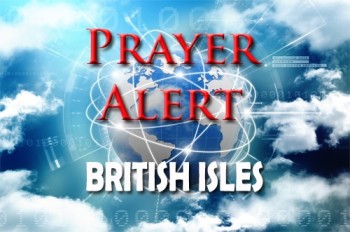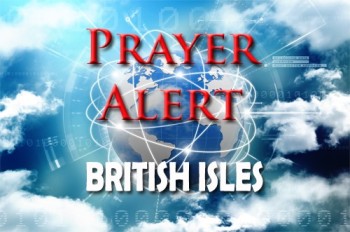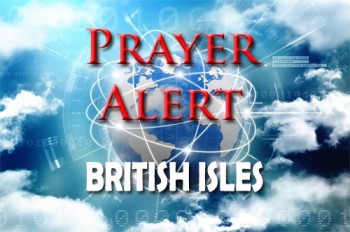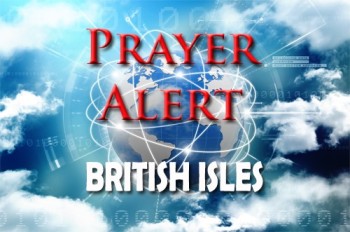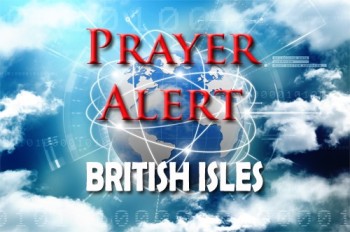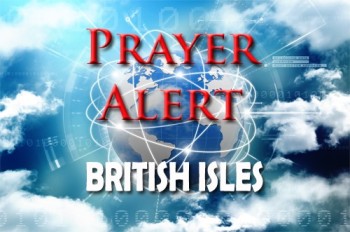Displaying items by tag: Immigration
Mahmood defends immigration reforms amid Labour opposition
Home secretary Shabana Mahmood has defended the government’s proposed immigration reforms amid growing opposition from Labour MPs concerned about fairness and workforce impact. The plans would double the standard qualifying period for permanent settlement from five to ten years, with some migrants—particularly health and social care workers—potentially waiting up to fifteen years. Mahmood argued that record levels of net migration require a firm response, describing settlement as a privilege rather than a right. Government figures show net migration added 2.6 million people to the UK population between 2021 and 2024, with up to 1.6 million projected to qualify for settlement later this decade. Ministers say the proposals allow flexibility, enabling high earners or those on global talent routes to shorten the qualifying period, while benefit dependency could extend it. A consultation is exploring transitional arrangements, though those already granted settlement would not be affected. Critics warn the reforms risk being retrospective and 'un-British’, potentially deterring vital workers and worsening skills shortages, especially in the care sector. The debate highlights ongoing tensions between border control, economic need, and fairness.
Responses to Trump’s criticisms of ‘weak, decaying’ Europe
Donald Trump has intensified his criticism of Europe, portraying the continent as weak’, ‘decaying’, and threatened by immigration. Using inflammatory language, he echoed ‘great replacement’ conspiracy themes, claiming that European countries risk becoming non-viable due to immigration. He insisted European cities such as London and Paris have fundamentally altered, and once again made a personal attack on London’s mayor Sadiq Khan. His remarks followed the recent release of a new US national security strategy warning of Europe’s supposed ‘civilisational erasure’ and signalling support for nationalist parties. European leaders reacted with dismay: Germany’s chancellor Friedrich Merz rejected the idea that Europe needs saving, calling parts of the strategy unacceptable. Pope Leo XIV also cautioned that the shift in US policy risks damaging the long-standing transatlantic alliance, and European Council president António Costa warned Trump not to interfere in Europe’s affairs (see).
Immigration: home secretary’s new proposals
Shabana Mahmood is under mounting pressure to provide clarity and compassion after confirming that only a ‘few hundred’ asylum seekers will initially be admitted under the UK’s newly-announced ‘safe and legal’ routes. The home secretary has paired these routes with strict measures, copying Danish policies, aimed at deterring illegal crossings, including asset confiscation and the enforced removal of families who decline financial incentives to return home. Critics - including Labour MPs, refugee advocates, and UNHCR - argue that such limited pathways will do little to reduce dangerous Channel crossings or support those fleeing war and persecution. Organisations warn that people cannot afford to wait years for routes to expand, and that uncertainty will only deepen despair. Additionally, proposals to withdraw financial support from families with denied claims have sparked moral outrage, particularly over their impact on children. As the Government seeks to reshape asylum policy, many insist that protection, dignity, and fair family reunification remain essential to any credible system.
Spain: a different approach to Africa and to migrants
In contrast to many Western nations, Spain is charting an independent path on migration and relations with Africa. While the USA, UK, France, and Germany are reducing development aid, prime minister Pedro Sánchez is deepening his country’s engagement with Africa through investment, diplomacy, and dialogue. The socialist-led government’s strategy emphasises shared prosperity, education, and sustainable growth, reflecting Madrid’s belief that Europe and Africa ‘form part of the same geopolitical space’. Alongside this vision, Spain continues to experience migration pressures, with 45,000 crossing from Africa to Spain or the Canary Islands in 2024. Yet unlike many European leaders, Sánchez acknowledges migrants’ contributions and backs ‘safe, orderly, and regular’ mobility schemes such as ‘circular migration agreements’ which give West Africans short-term visas to come to Spain for limited periods of seasonal work, mainly in agriculture, and then return. By coupling realism with empathy, Sánchez is seeking to balance security with solidarity, presenting a model of cooperation rooted in dignity, opportunity, and mutual benefit.
Small boat immigrant deportation flights grounded again
The Government’s new 'one in, one out' deal with France to deport Channel migrants has hit delays, as deportation flights were grounded for a third consecutive day. The Home Office is appealing a High Court ruling which halted the removal of a man claiming to be a victim of modern slavery. Home secretary Shabana Mahmood condemned 'last-minute, vexatious' appeals, vowing to fight attempts to block removals and pledging to review the Modern Slavery Act to close loopholes. She insisted that Britain’s generosity was being exploited and promised to 'robustly defend the public’s priorities’. The UK-France pilot scheme, agreed by Keir Starmer and Emmanuel Macron in July, would return asylum seekers arriving illegally in small boats while allowing approved applicants to enter the UK through a legal route. Officials maintain flights will still go ahead in the coming days, despite setbacks. Critics warn, however, that deportations must carefully consider genuine trafficking cases and vulnerable individuals. Breaking news: the first deportation has taken place. See
Germany: ten years after Merkel opened borders to migrants
Ten years after Angela Merkel opened Germany’s borders to migrants with her famous ‘We can do this’ pledge, the nation continues to grapple with the political and social repercussions. Syrian refugee Anas Modamani, who arrived alone at 17 after a perilous journey and became briefly famous for a viral selfie with Merkel, now lives in Berlin with German citizenship and an IT career. Between 2015 and 2024 Germany registered 2.6 million first-time asylum requests - over a third of the EU total - primarily from Syria, Afghanistan, and Iraq. While many Germans initially embraced ‘Willkommenskultur’, the mood has now changed significantly, evidenced in the rise of the far-right AfD. Current chancellor Friedrich Merz has tightened border controls, though courts have blocked some measures. As public opinion hardens - 68 percent now favour fewer refugees - applications from Syrians and Afghans have fallen. Modamani senses a colder atmosphere and says he might leave if hostility grows.
Channel migrants: ‘no specified number’ to be returned to France
Home secretary Yvette Cooper has confirmed there is 'no specified number' of migrants set to be returned under the UK-France 'one in, one out' agreement, now in effect. The scheme enables the UK to return illegal Channel-crossers to France while accepting an equal number of vetted asylum seekers with ties to Britain. Though early estimates suggest around 50 returns per week, this is modest compared to the 800 weekly arrivals this year. Critics argue that the plan addresses only a small portion of illegal arrivals and lacks true deterrence. The treaty was agreed between Prime Minister Starmer and President Macron following months of negotiations. The Home Office has pledged £100 million to support enforcement, fund 300 new National Crime Agency officers, and bolster anti-smuggling technology. Migrants returned to France cannot reapply via the legal route. The treaty remains active until 2026, with ongoing reviews planned. See
France accused of encouraging people-smuggling
Fresh controversy has erupted after video footage emerged showing French border officers handing life jackets to migrants mid-Channel, fuelling claims that France is aiding illegal crossings rather than preventing them. The footage, captured by migrants, shows a French patrol vessel approaching a small migrant boat and supplying safety vests. Critics, including Shadow Home Secretary Chris Philp and former Border Force chief Tony Smith, argue this action undermines UK-funded efforts to stop smuggling and sends the wrong message to those attempting the journey. Smith insists that if the French can approach boats at sea, they should redirect them back to French shores. With over 11,500 crossings recorded by early May (up 35% from last year), the Government faces mounting pressure to resolve the crisis. Officials stress that life jackets are distributed based on safety assessments, but the video has triggered strong political backlash. The Home Office reaffirmed its goal to dismantle smuggling networks exploiting vulnerable people for profit, as calls grow for firmer preventative measures.
24,000 people who have 'no right to be here' have been returned under Labour
At the Government’s border security summit in London, Keir Starmer reported that 24,000 individuals without legal right to remain in the UK have been returned since Labour took power - the highest return rate in eight years. The summit gathered representatives from over 40 countries to address illegal migration and people smuggling, including tech platforms accused of enabling trafficking via social media. Home secretary Yvette Cooper highlighted the cruel tactics of smuggler gangs, including hugely overcrowded boats, exploiting vulnerable people, and using drones to evade detection. Ministers acknowledged disappointment in the rising small boat crossings and pledged £33 million in new funding to target organised criminal networks globally. Starmer emphasised the need for international collaboration, calling people smuggling a 'global security threat’.
USA: Trump plans to use Guantanamo Bay to detain migrants
Donald Trump announced plans to sign an executive order directing the federal government to prepare the naval base at Guantanamo Bay, Cuba, to detain up to 30,000 migrants. He claimed the base already has the capacity to house ‘the worst criminal illegal aliens‘ and that this move would double detention capacity. This coincided with signing an act which mandates detention for undocumented migrants charged with certain crimes. The bill, Trump’s first major legislative victory in his second term, had passed Congress with bipartisan support. Guantanamo Bay has historically been used for detaining terrorism suspects and temporarily processing migrants. However, an official has denied that 30,000 beds are available, and said that the base lacks infrastructure for such a large influx. Meanwhile, the White House has rescinded a total funding freeze announced on 27 January, which had caused huge confusion. For an analysis of this decision, see
